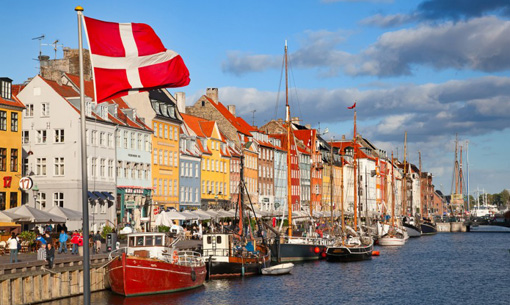
The mantra of the Democratic establishment and its allies lately is that Bernie Sanders’ vision for America is simply a fantasy. His popularity, they say, redounds from his empty slogans and unrealistic promises. He pledges free health care, college education, and more, which, critics insist, can’t be paid for.
David Brock, chairman and founder of Media Matters, for example, re-played this Rubio-esque robotic talking point recently, charging that even “left-liberal economists” say Sanders’ policies on taxes, health care, and education are “fantasy” and “insane.” Never mind that respected economists validate the integrity of his policy plans, that he has explained how he will fund them, or that Hillary Clinton plans to pay for her programs through increasing taxation on the wealthy and closing tax loopholes – exactly the same means Sanders has proposed.
The funny thing about Sanders’ presumably rich political fantasy life is that the fantastic world critics believe exists only in his overactive political imagination does actually exist.
Many industrialized countries, for instance in Scandinavia and other parts of Europe, actually have “free” college education and health care. Somehow, they’ve managed to realize the Sanders fantasy. (And of course it’s not really “free”; people pay for it together through a system of taxation to which all contribute).
The United States, among the wealthiest of nations, is in fact one of the few yet to develop a human-centered culture that devotes resources to cultivating people’s skills, talents, and overall well-being. Instead, we seem stuck in the belief that social resources are the rightful bounty of whoever can accumulate them, regardless of the social cost to others.
So why are the pundits so insistent on dismissing Sanders’ vision as “unrealistic”? Why do they persist in characterizing it as utopian rather than the practical reality it is?
Responses during and after the first Democratic debate last October suggest that a persistent – and pernicious – attitude of American exceptionalism may be at work.
This attitude informs much of the abiding and stubborn blindness to the reality that other nations have indeed created societies that realize the ethos that health care and education are public goods – meaning they aren’t just good for individuals within the society but make for a better world for all.
What do I mean by American exceptionalism?
American exceptionalism has a long history in our culture. As Harvard Professor Stephen Walt explains, typical manifestations of this belief “presume that America’s values, political system, and history are unique and worthy of universal admiration” and “imply that the United States is both destined and entitled to play a distinct and positive role on the world stage.” They rest “on the belief that the United States is a uniquely virtuous nation, one that loves peace, nurtures liberty, respects human rights, and embraces the rule of law.” “Americans,” Walt says, “like to think their country behaves much better than other states do, and certainly better than other great powers.”
This belief is so powerful that it distorts our national vision and, because it prevents us from truly assessing where we fall short, hinders our ability to address dimensions of our culture gravely in need of amelioration.
How often during the strident debates over “Obamacare” did we hear many leaders in Washington declare that the U.S. already had the greatest healthcare system in the world, even when studies hardly justify that claim? A June 2014 study by the Commonwealth Fund, for example, ranked the U.S. last among 11 industrialized nations “on measures of health system quality, efficiency, access to care, equity, and healthy lives.”
In the realm of education, in a 2013 study by the Economist Intelligence Unit, the U.S. ranked 17th out of 40 countries in terms of educational performance.
Finland ranked first.
Yet, have we looked to Finland for answers to our educational woes? Do we ever look seriously to the models other countries offer for creating a humane society?
Well, no, not really. Such an approach tends to be shunned, as the reaction to Sanders illustrates. He was skewered after the first debate for remarking that “we should look to countries like Denmark, like Sweden and Norway, and learn from what they have accomplished for their working people.” Willie Geist on Morning Joe characterized Sanders’ presentation of Denmark as a model for America to aspire to as a political gaffe.
On Hardball the next day, Chris Matthews and his guest, “progressive” talk show host Ari Rabin-Havt, also found Sanders’ comments off-putting and politically ineffective. Their argument was that Americans don’t want to be Scandinavian; they want to be Americans.
I don’t understand this definition of “Americanness.” Is it not American to exercise our collective intellects to improve Americans’ lives? Is it an “American” practice to dismiss ideas for improving our society because said ideas are not “American” enough?
I hope it’s clear how ridiculous and anti-intellectual that position is. I’m guessing it’s also not what many U.S. citizens would think of as defining “American.”
For her part, Clinton did nothing to counteract the American exceptionalist assault on Sanders during and following that first debate. The position she articulated was basically that, “It can’t happen here.”
Somehow, for all of America’s wealth and ingenuity, we just can’t implement the humane social policies enacted in Scandinavia and across Europe – and we just aren’t interested in their values.
The 29 million Americans without health insurance, and the millions more buried in student debt, might be more than a little horrified by this brand of Americanism. It expresses a lack of interest in our collective educational attainment, health, and economic well-being. It downplays the hefty creative, intellectual, and economic resources at our disposal that, if unleashed, could help to realize the world Sanders envisions.
To see the possibilities available to us as a nation, we need to look elsewhere and overcome our global ignorance – and arrogance – rooted in an exceptionalist attitude.
Clinton, even as the former Secretary of State, has not been above expressing such sentiments. During the first debate, when asked by Anderson Cooper if she shared Sanders’ critique of U.S. capitalism, Clinton responded:
“When I think about capitalism, I think about all the businesses that were started because we have the opportunity and the freedom to do that and to make a good living for themselves and their families… We would be making a grave mistake to turn our backs on what built the greatest middle class in history.”
Then, as if for effect, she stressed that, “We are not Denmark. I love Denmark. We are the United States of America.”
Yet, even Forbes magazine in 2014 ranked Denmark as the most fertile and supportive national soil for entrepreneurship and small business development, while the U.S. slid in the rankings.
We don’t want to emulate Denmark in this regard?
The question isn’t whether Denmark has a capitalist or socialist economy. This debate, which has been taken up in spades, isn’t really the issue. The issue is whether Denmark’s social and economic policies provide any useful pointers for creating a more humane economy here in the U.S. The question is whether we can we create a society that serves human needs and enables our highest aspirations.
Sanders suggested we look to a place like Denmark not because it is socialist or capitalist, but because the people there enjoy a higher quality of life. You don’t have to just take Bernie Sanders’ word for it, though. How about listening to a bastion of socialist propaganda like Fortune magazine? They declared that Denmark does indeed have the best benefits for working class people, thus validating Sanders’ vision.
If we overcome American exceptionalism and forget the tragedy of a melancholy Dane, we might see that really there is nothing rotten in the state of Denmark.
Photo: Fedor Selivanov/Shutterstock (Stock photo)

MOST POPULAR TODAY


Zionist organizations leading campaign to stop ceasefire resolutions in D.C. area

Communist Karol Cariola elected president of Chile’s legislature

Afghanistan’s socialist years: The promising future killed off by U.S. imperialism

High Court essentially bans demonstrations, freedom of assembly in Deep South






Comments